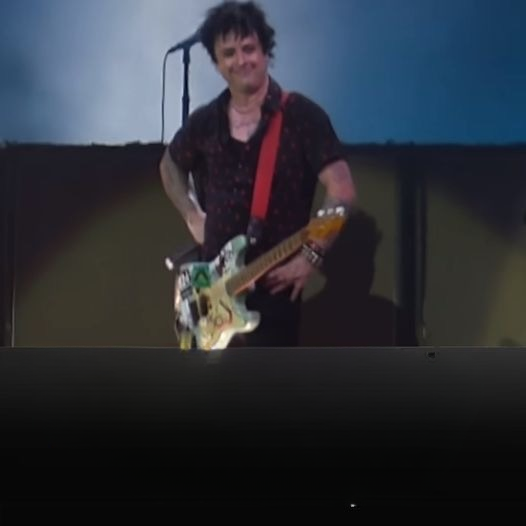At a sold-out venue in London, fans of one of the world’s most iconic punk bands were already buzzing with excitement. But the energy in the arena shifted dramatically when the band’s lead singer took the stage and dropped a statement that stunned everyone: he plans to renounce his U.S. citizenship in protest of the Supreme Court’s recent decision to overturn Roe v. Wade. The declaration was bold, personal, and immediately electrified the crowd.
“I’m not kidding,” he said, his voice steady over the roar of fans. “You’ll be seeing a lot more of me here in Europe.” His words were met with a mixture of cheers, gasps, and stunned silence. For many in attendance, the concert became more than music—it was a moment of political defiance and moral conviction unfolding live on stage.
The punk singer’s announcement came amid a climate of heightened activism and cultural unrest. Across the Atlantic, Americans were grappling with the implications of the Supreme Court’s ruling, which rolled back decades of precedent on reproductive rights. The artist’s choice to speak out so publicly underscored the personal stakes felt by millions.
The following night, during another U.K. show, the singer continued to challenge his home country. Between songs, he criticized the Supreme Court justices, lamenting the trajectory of U.S. politics and framing his renunciation as a moral response to what he described as an “erosion of rights.” Fans, many holding homemade signs, cheered and chanted in solidarity.
His message resonated far beyond London. Clips of the concert spread quickly online, igniting debates about celebrity activism, national loyalty, and the role of artists in shaping political discourse. For some viewers, the statement was inspiring; for others, it sparked heated discussion about citizenship, protest, and the intersection of art and politics.
Meanwhile, the cultural reverberations of the ruling extended to Glastonbury, one of the world’s largest music festivals. Pop sensation Olivia Rodrigo used her stage to voice frustration and call out the conservative justices by name, lending her platform to the broader movement for reproductive rights. The festival became a nexus of music, activism, and collective outrage.
Fans and media alike noted the contrast between the European stages and the debates unfolding in the United States. In London and Glastonbury, artists wielded their voices boldly, while in the U.S., protests and political discourse continued in city streets and legislative chambers. The global spotlight highlighted how interconnected entertainment and activism have become in today’s world.
Social media amplified the impact. Videos of the punk singer’s speech went viral, accompanied by hashtags expressing support, outrage, or simply bewilderment. Online forums were filled with discussions about what it means for a celebrity to renounce citizenship in protest, and whether such acts inspire real change or remain symbolic gestures.
Critics questioned the move, citing practical implications of giving up citizenship, while supporters celebrated the courage to align personal ethics with life-altering choices. In either case, the conversation extended beyond music, touching on law, morality, and the enduring power of cultural influence in shaping public opinion.
Backstage interviews revealed that the singer had long considered this act a necessary stand, emphasizing that art and activism are inseparable in his life. “Music has always been about speaking truth,” he told reporters. “Sometimes that truth demands action—even personal sacrifice.”
For many fans, these concerts will be remembered not only for the performances but for the moments of moral and political clarity. The combination of melody, message, and outrage made it clear that music remains a vital force in social discourse.
As the tour continues, both the punk singer and other artists like Olivia Rodrigo are using their platforms to spark reflection and dialogue. Their efforts demonstrate that cultural moments can ripple across borders, turning stages and festivals into arenas of both entertainment and resistance.
